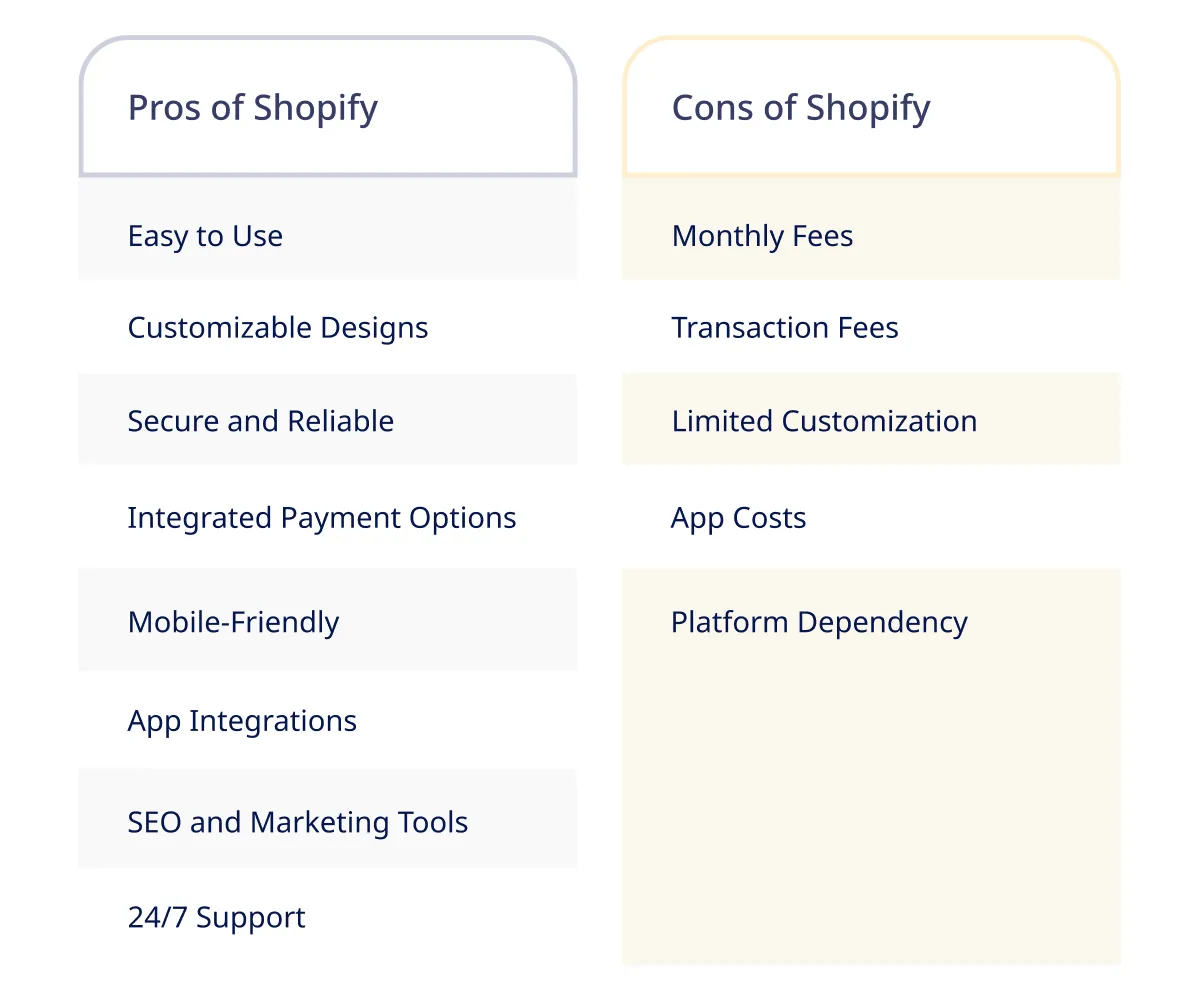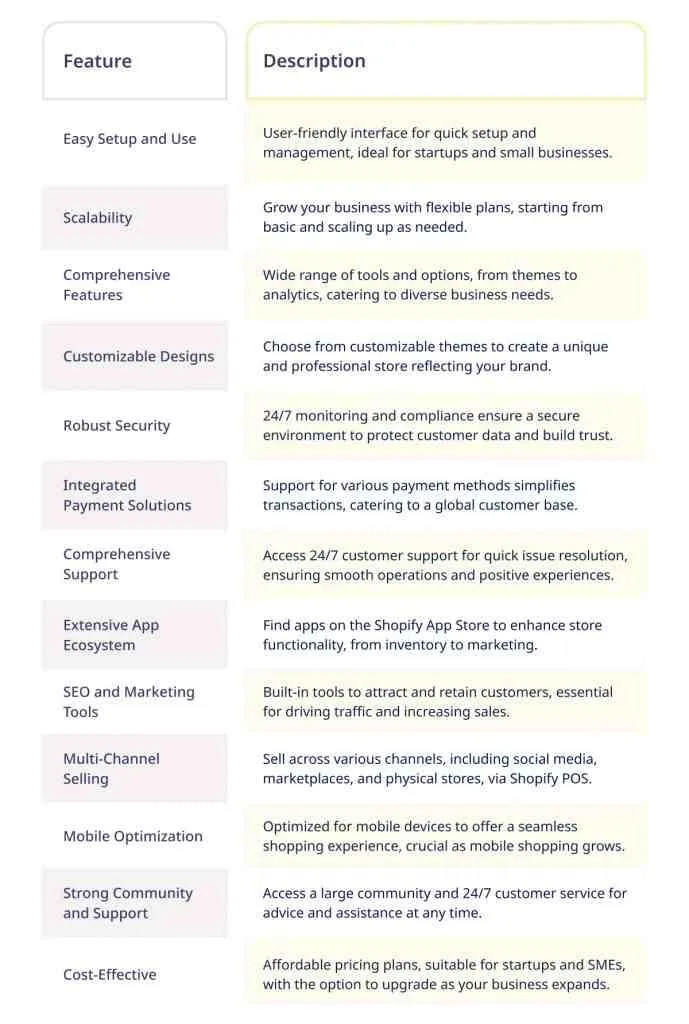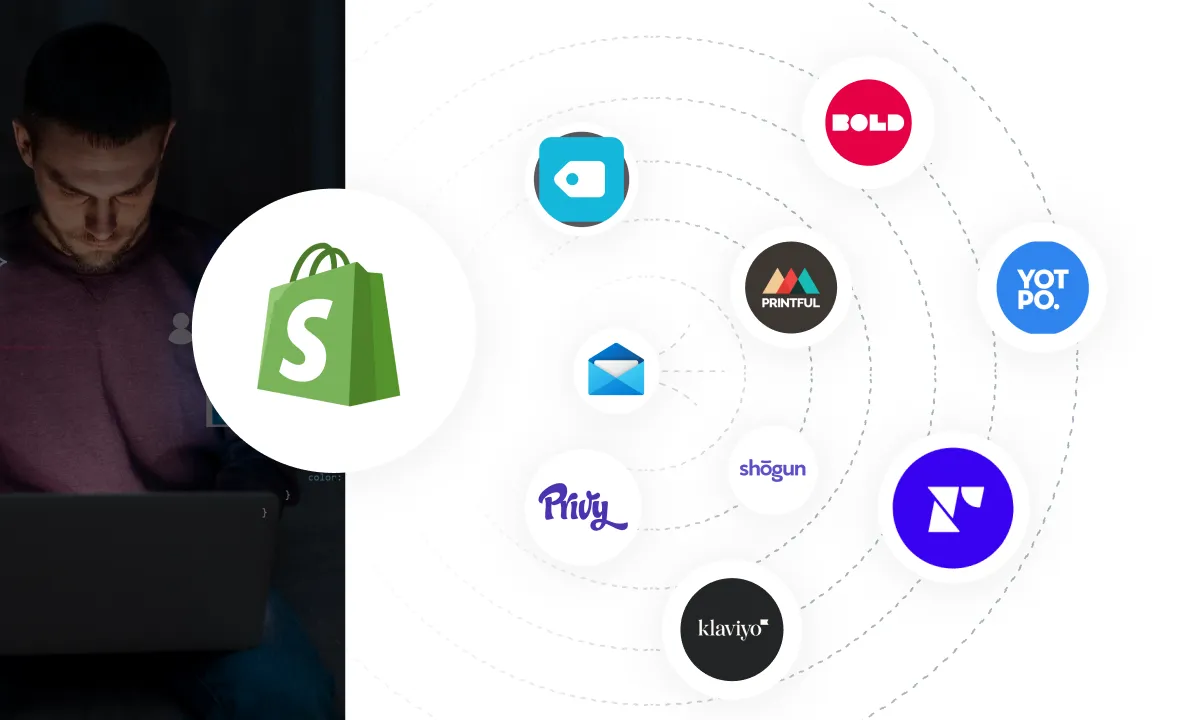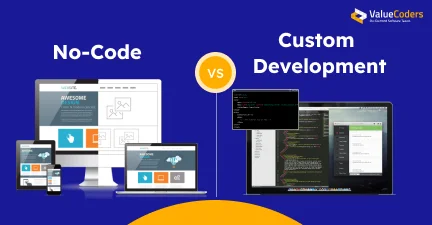Do you know that nearly 4,457,121 active websites currently use Shopify?
Additionally, 2,964,499 websites have used Shopify in the past, and there are 60,634 websites in India utilizing the platform.
The above graph shows the popularity of Shopify for eCommerce development. Now, the question arises: what makes it a preferred choice?
Shopify is considered the best option due to its benefits, such as reduced development time, physical server cost, development effort, and many more.
Let’s discuss what exactly Shopify is and the benefits of Shopify website that make it a preferred choice for businesses and developers alike in detail.
What is Shopify?
Shopify is a subscription-based software that allows everyone to create store and sell products online. Here are some key features:
Trust ValueCoders to customize your Shopify store for maximum sales and business growth.
- Online Store Setup: Easily set up and manage an online store.
- Sell in Physical Locations: Use Shopify POS (point-of-sale app) and hardware to sell products in physical stores.
- Inventory Sync: Sync inventory and stock across online and physical stores.
- Unified Management: Manage everything from one account on any device.
Top Benefits of Shopify You Must Not Miss Out
Now that we know what Shopify is, let’s look at the benefits of using Shopify for eCommerce businesses that you should not miss.
- Easy to Use
Shopify is specifically designed to be user-friendly, making it simple for anyone to set up and manage their online store. You don’t need any technical skills to get started, and the intuitive interface assists you through each step of the process.
- Customizable Designs
Shopify development services offer a wide selection of professional themes that you can customize to match your brand’s look and feel. This allows you to create a unique and visually appealing store without needing to hire a designer.
- Secure and Reliable
Shopify ensures your online store is secure and reliable, with 24/7 monitoring to protect against threats. Your data is kept safe, and you can rely on the platform to keep your store running smoothly at all times.
- Integrated Payment Options
With Shopify, you can accept payments from major credit cards, PayPal, and other methods directly through the platform. This integration makes the checkout process seamless for your customers and helps you manage transactions efficiently.
- Mobile-Friendly
Shopify stores are optimal for mobile devices, ensuring your store looks great and functions well on smartphones and tablets. This is crucial as more customers shop from their mobile devices.
- App Integrations
Enhance your store’s functionality with a range of apps available on the Shopify App Store. These apps can help with everything from inventory management to marketing and customer service, allowing you to modify your store to meet your specific needs.
- SEO and Marketing Tools
Shopify experts provide built-in tools to improve your store’s search engine ranking and run effective marketing campaigns. These tools help you attract more visitors to your site and convert them into customers.
- 24/7 Support
Shopify’s customer service team is available around the clock to help you with any issues or questions. This ensures that you always have access to the help you need, no matter what time it is.
By utilizing these benefits of Shopify development services, you can create a robust online presence and provide a seamless shopping experience for your customers.
Get expert Shopify development services from ValueCoders and unlock the full potential of your online store.
Shopify Cons
Although there are many benefits of Shopify website, like everything, it also has its limitations or disadvantages. Let’s have a look at some of the cons of Shopify:
- Monthly Fees
Shopify offers a monthly subscription fee, which can add up over time. There are different pricing plans available, but even the basic plan can be a significant expense for small businesses.
- Transaction Fees
In addition to monthly fees, Shopify charges transaction fees if you use payment gateways other than Shopify Payments. This can increase your overall costs, especially if you have a high volume of sales.
Limited Customization
While Shopify provides many themes and customization options, there are limits to how much you can modify the design and functionality without advanced technical skills. For more complex customizations, you might need to hire a developer.
- App Costs
Many of the apps that enhance your Shopify store come with additional costs. Depending on the number of apps you need, these costs can add up quickly, increasing your overall expenses.
- Platform Dependency
With Shopify, your store is dependent on the platform. If Shopify experiences downtime or technical issues, your store could be affected. Additionally, if you decide to switch to another platform, migrating your store can be challenging.
By weighing these cons against the benefits of Shopify, you can hire Shopify programmers and take an informed decision about whether Shopify is the right for your business.
Why eCommerce Startups, SMEs, and Large Enterprises Prefer Using Shopify?
Shopify is popular among businesses of all sizes, from Startups and Small-to-Medium Enterprises (SMEs) to large enterprises. Here’s why:
- Easy Setup and Use
Shopify’s user-friendly interface makes it easy for anyone to set up and manage an online store. When you hire Shopify developers, the platform’s simplicity is beneficial especially for startups and small businesses that may not have extensive tech stacks or technical expertise.
- Scalability
Shopify can grow with your business. Whether you’re a small startup or a large enterprise, Shopify offers the tools and features needed to scale your operations. You can start with a basic plan and upgrade as your business expands.
- Comprehensive Features
Shopify offers various features that cater to different business needs. From customizable themes and integrated payment options to advanced analytics and marketing tools, Shopify has everything you need to run a successful online store.
- Customizable Designs
With various customizable themes available, businesses can create a unique and professional-looking store that reflects their brand. This is important for businesses of all sizes to stand out in a competitive market.
- Robust Security
Shopify ensures your online store is secure with 24/7 monitoring and compliance that meets industry standards. This security is crucial for all businesses to protect customer data and build trust.
- Integrated Payment Solutions
Shopify supports various payment methods, making it simple for businesses to accept payments from global customers. This flexibility is beneficial for both small businesses and large enterprises with a global customer base.
- Comprehensive Support
Shopify offers 24/7 customer support, helping businesses resolve issues quickly and efficiently. This reliable support is vital for maintaining smooth operations and providing a positive customer experience.
- Extensive App Ecosystem
The Shopify App Store provides various apps to enhance store functionality. From inventory management to marketing tools, businesses can find apps that meet their specific needs, allowing them to tailor their store to their operations.
- SEO and Marketing Tools
Shopify includes built-in SEO and marketing tools to help businesses attract and retain customers. These features are crucial for driving traffic and increasing sales, regardless of the business size.
- Multi-Channel Selling
Shopify lets businesses to sell on multiple channels, including social media, online marketplaces, and physical stores through Shopify POS. This multi-channel approach helps businesses reach more customers and increase sales.
Work with ValueCoders to implement multi-channel selling strategies and reach more customers.
- Mobile Optimization
Shopify stores are customized for mobile devices, ensuring that customers have a smooth shopping experience whether they’re on a desktop, tablet, or smartphone. This is essential as mobile shopping grows continuously.
- Strong Community and Support
Shopify has a huge community of users and experts who can offer advice and support. Additionally, Shopify’s customer service is available 24/7 to assist you with any problems you may encounter.
- Cost-Effective
For startups and SMEs, Shopify offers a cost-effective solution with its various pricing plans. You can start with a basic plan and upgrade as your business grows, making it an affordable option for businesses at any stage.
By offering these advantages, Shopify meets the needs of eCommerce software startups, SMEs, and large enterprises, making it a preferred platform for businesses looking to establish and grow their online presence.
Famous eCommerce Apps Build Using Shopify
Let’s look at some popular eCommerce apps and websites employing Shopify platform for their businesses.
These provide a range of functionalities to enhance the Shopify experience for both merchants and customers. Here are some notable examples:
- Oberlo: A dropshipping app that allows merchants to easily find out products to sell and fulfill orders directly from suppliers.
- Printful: An on-demand printing and fulfillment service that integrates seamlessly with Shopify, allowing merchants to create and sellcustom-printed products with ease.
- Bold Apps: Bold offers a suite of apps designed to help merchants increase sales and streamline operations, including product upsell, subscriptions, and loyalty programs.
- Yotpo: A customer review and marketing platform that helps merchants collect and display product reviews, photos, and ratings to build trust and drive sales.
- Klaviyo: An email marketing platform that integrates with Shopify to help merchants create targeted email campaigns and automate customer communication.
- ReCharge: A subscription billing platform that allows merchants to sell products on a recurring basis, such as subscription boxes and monthly memberships.
- Privy: A conversion optimization tool that helps merchants capture more leads, minimize cart abandonment, and increase sales through targeted pop-ups and email campaigns.
- Shogun: A drag-and-drop page builder that allows merchants to build custom landing pages, product pages, and blog posts without any coding knowledge.These apps demonstrate the benefits of Shopify, including the platform’s versatility and flexibility. They allow merchants to customize their store’s functionality to meet their particular needs and grow their business effectively.
Enhance your Shopify store's visibility and increase traffic with ValueCoders’ Shopify solutions.
Wrapping Up
Shopify’s popularity among eCommerce platforms is evident due to its user-friendly interface, scalability, comprehensive features, and robust security.
With famous apps like Oberlo and Yotpo built on its platform, Shopify offers merchants the tools they need to succeed.
Shopify provides an ideal solution for businesses looking to establish or expand their online presence.
When you hire Shopify developers from ValueCoders, our experts ensure seamless integration and optimization for your eCommerce venture. Contact us today to elevate your online store to new heights with Shopify.








